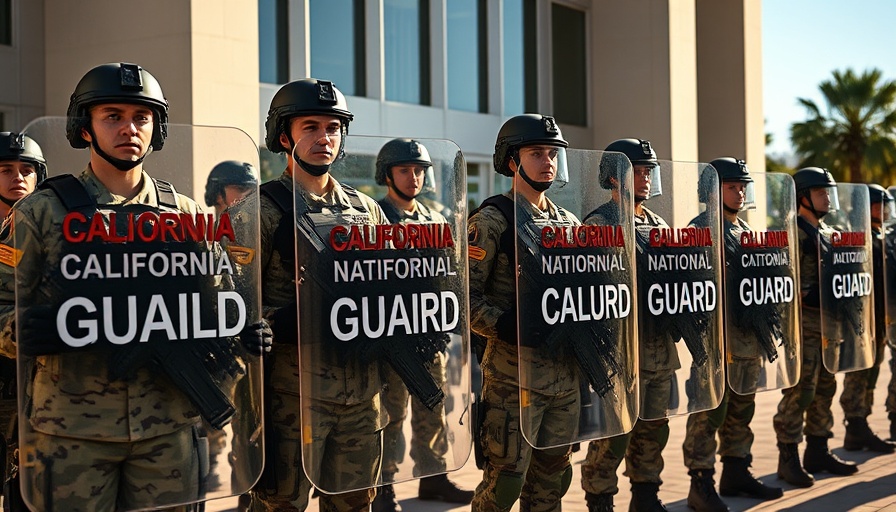
Trump's Authority: A Constitutional Conundrum
The recent decision by a three-judge panel of the 9th U.S. Circuit Court of Appeals has stirred significant debate regarding presidential power and state sovereignty. President Trump’s ability to federalize California National Guard troops without the consent of Governor Gavin Newsom has raised eyebrows and evoked contrasting opinions about the ramifications of such a ruling. The court concluded that Trump acted within his legal authority, providing a defensible rationale for his actions amidst protests that escalated into violence.
The Protests That Prompted Federal Action
In June 2025, protests erupted in Los Angeles, drawing attention to immigration policies that many deemed excessive. The court noted disturbances included protesters who assaulted federal officers and damaged property, which the Trump administration cited as a justification for moving in federal troops. This situation highlights the increasing tension between state actions and federal responses, especially regarding law enforcement during periods of civil unrest.
The Governor's Pushback: A Matter of State Rights
While Trump celebrated the court's ruling as a victory, Governor Newsom expressed his discontent, emphasizing that the president does not wield king-like authority over state National Guards. His counterargument reflects broader concerns about federal overreach and whether this deployment sets a precedent that could challenge the autonomy of state governments in the future. Newsom’s commitment to continuing legal challenges shows that this battle over control is far from over.
What This Means for Future Federal Deployments
The implications of this ruling stretch beyond the immediate context of California. As the Trump administration has invoked military presence for various national security claims in more Democratic-leaning areas, this case could recalibrate the dialogue surrounding states’ rights versus federal authority. The court's decision to halt the lower court's judgment could embolden future administrations to take similar actions in crisis scenarios without seeking local consent, fundamentally altering the landscape of presidential emergency powers.
Connecting the Dots: Business and Political Instability
For business professionals, understanding the intersection of politics and national security is crucial. Political instability often results in market fluctuations, influencing everything from venture capital funding to consumer behavior trends. Just as businesses are adjusting to changing regulations and economic forecasts, they must also navigate the uncertain terrain of governmental authority and public safety. The ongoing situation in California serves as a case study in the complexities of business strategy in politically charged environments.
As discussions continue around the balance of power in the U.S., industry leaders and entrepreneurs should stay informed and agile, ready to adapt to new regulations and market dynamics. For those operating in or focusing on California or similar politically active regions, this awareness is particularly significant in shaping strategic decisions moving forward.
 Add Row
Add Row  Add
Add 



Write A Comment